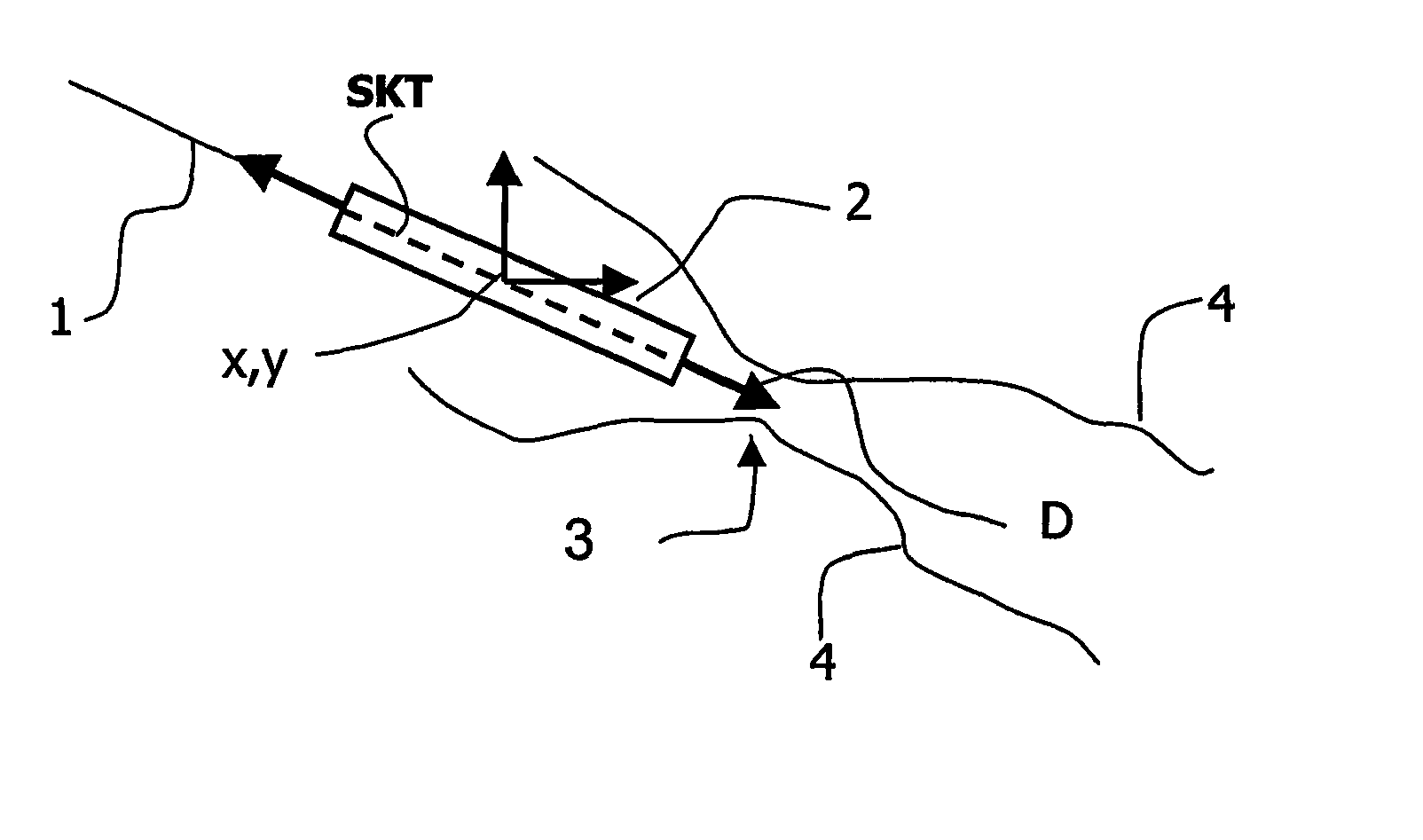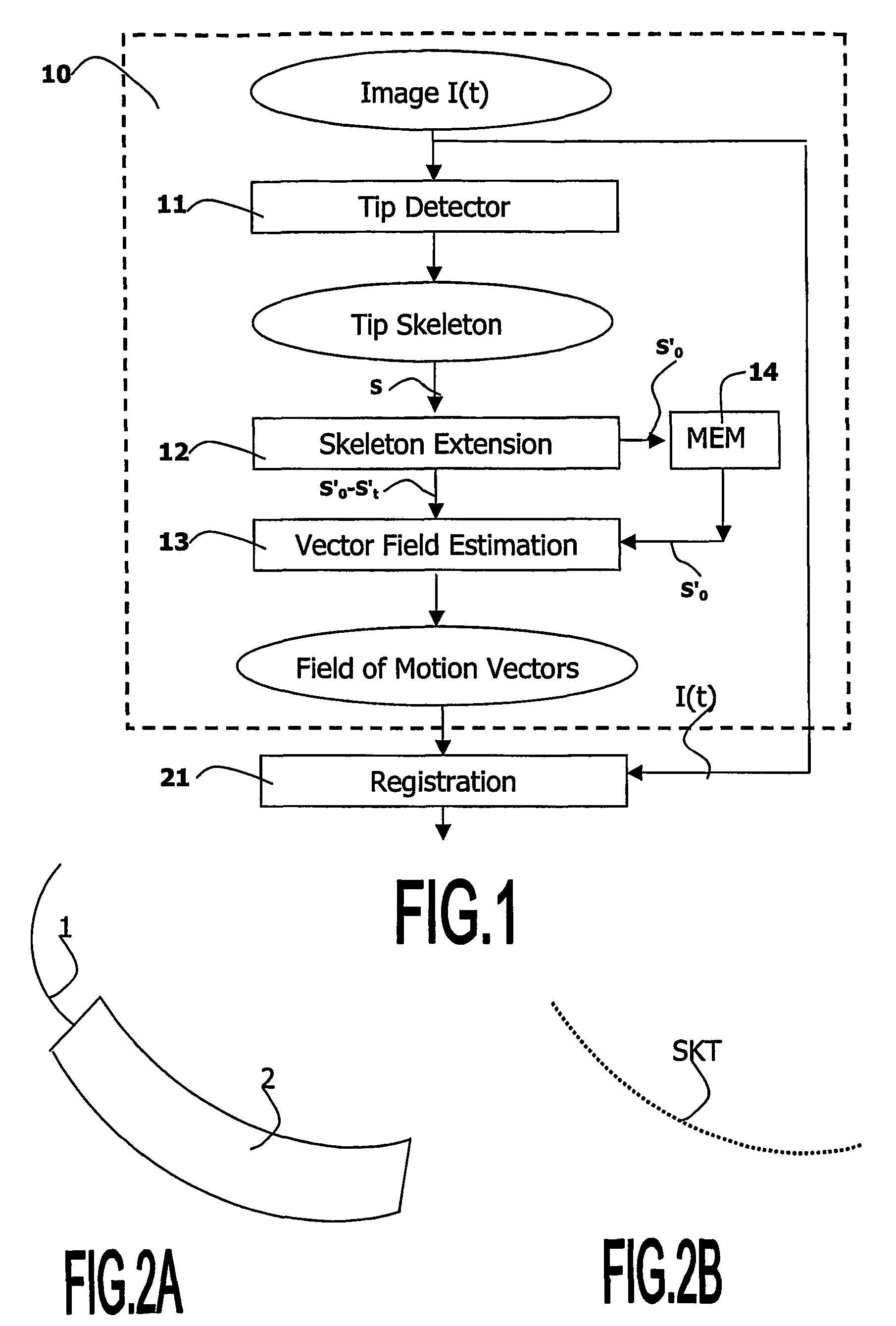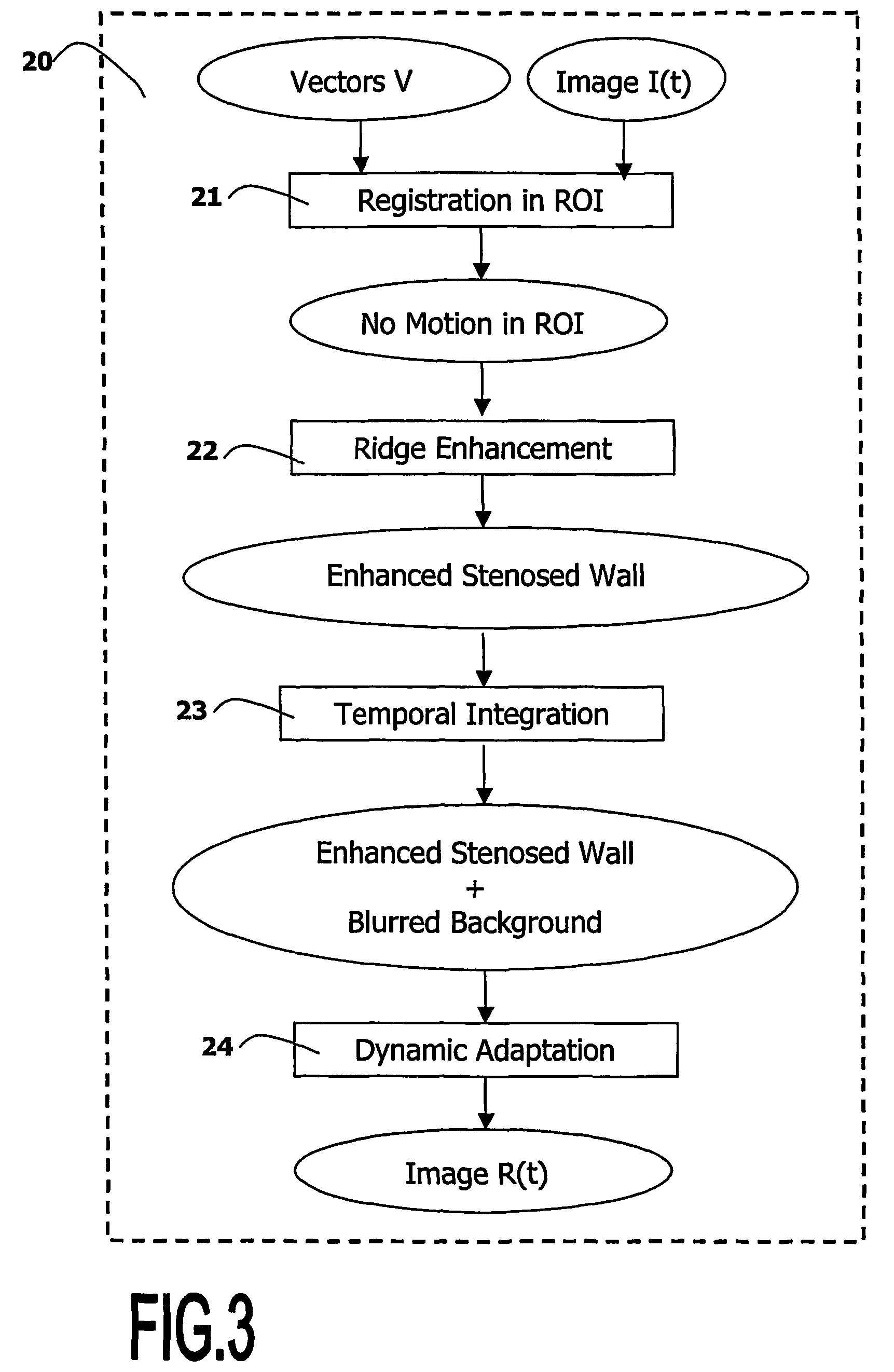Medical viewing system and method for detecting boundary structures
a viewing system and boundary structure technology, applied in the field of medical viewing systems, can solve the problems of not easy to directly perform in noisy images, the doctor encounters a first very difficult step, and the most difficult tasks the doctor must perform, and achieve the effect of improving the visibility of the artery walls
- Summary
- Abstract
- Description
- Claims
- Application Information
AI Technical Summary
Benefits of technology
Problems solved by technology
Method used
Image
Examples
Embodiment Construction
[0019]The invention relates to a viewing system, and to a computer executable image processing method that is used in the viewing system, for detecting, localizing, registering, enhancing and zooming structures in noisy images. The viewing system and the image processing method of the invention are described hereafter in an example of application to the medical field of cardiology. In said application, the object of interest is an artery, which is observed during a medical intervention called angioplasty, in a sequence of X-ray fluoroscopic images called angiograms.
[0020]Referring to FIG. 6A, the angioplasty is a medical intervention that usually comprises several stages for enlarging an artery at the location of a lesion called stenosis. In a preliminary stage, the practitioner localizes a stenosis 3 in a patient's artery 4 as best as possible in peri-interventional images. These images are obtained while using a contrast agent introduced in the artery in order to improve the image...
PUM
 Login to View More
Login to View More Abstract
Description
Claims
Application Information
 Login to View More
Login to View More - R&D
- Intellectual Property
- Life Sciences
- Materials
- Tech Scout
- Unparalleled Data Quality
- Higher Quality Content
- 60% Fewer Hallucinations
Browse by: Latest US Patents, China's latest patents, Technical Efficacy Thesaurus, Application Domain, Technology Topic, Popular Technical Reports.
© 2025 PatSnap. All rights reserved.Legal|Privacy policy|Modern Slavery Act Transparency Statement|Sitemap|About US| Contact US: help@patsnap.com



